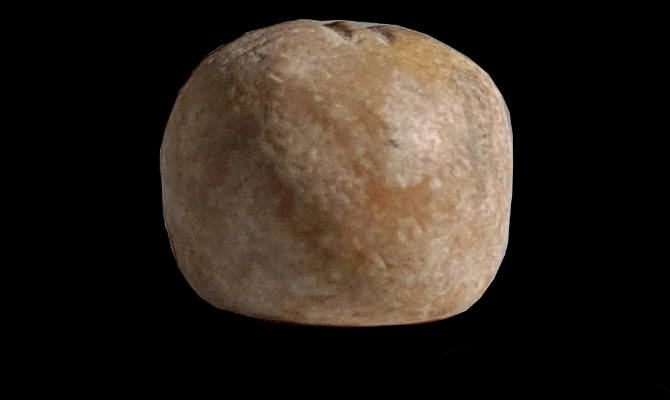The tiny weight, which is 14 mm in diameter and 12 mm high, is made of smoothed and well-polished hard reddish limestone, and on its upper part two straight, parallel, thick lines appear in a deep engraving indicating the weight of two gerah, which is 0.944 grams. After the weight was discovered, it was weighed, and the researchers were surprised to find that it weighed no less than 3.61 grams – more than three times its expected weight.
According to the archaeologist Eli Shukrun who conducted the excavation and studied the find, together with Hagai Cohen Kalonimus from the Hebrew University, the obvious conclusion is that it is a weight that was used to forge and cheat in the trading process.
“The Bible indicates that the problem of cheating with weights is not a new thing; traders cheated and kept separate heavy and light weight systems, and used them when buying or selling,” say the researchers. This phenomenon is criticized in several sources in the Bible. For example, in the book of Deuteronomy it is written: You shall not keep in your pouch two different weights, one large and one small. You shall not keep in your house two different epha measures, one large and one small. [Rather], you shall have a full and honest weight, [and] a full and honest ephah measure, in order that your days will be prolonged on the land with the Lord, your God gives you. For whoever does these things, whoever perpetrates such injustice, is an abomination to the Lord, your God. (Deuteronomy 20:13-16). The book of Proverbs also criticizes the phenomenon of cheating using weights: “Diverse weights are an abomination of the Lord, and deceptive scales are not good.” (Proverbs 20:23).




